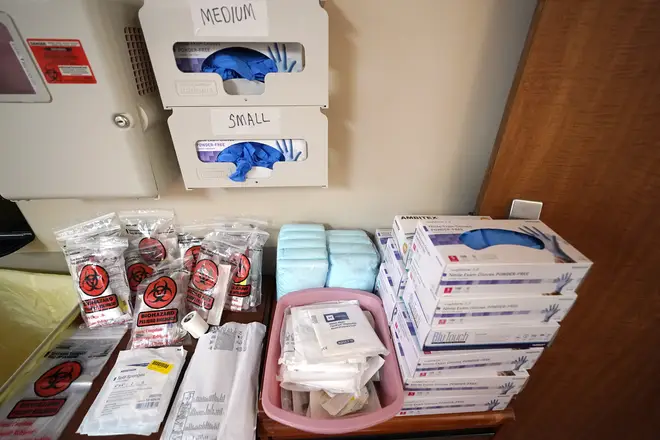
Oli Dugmore 4am - 7am
29 July 2020, 17:11

Stockpiles of medicines need to be increased ahead of a possible second wave of coronavirus, MPs have said.
In a report examining the economic impact of Covid-19, the Commons International Trade Committee said the typical six-month "buffer stock" of medicine supplies needs to be boosted.
The study found that UK trade in essential goods like pharmaceuticals, medical supplies and food had mainly managed well in the crisis, but more action was needed.
MPs said: "UK supply chains in these critical sectors have largely held up during the pandemic, despite spikes in demand, disruption to production and freight, and export bans in some countries.
"While UK supply chains for medicines have proved to be resilient, they can only be stretched so far.
"The Government must ensure that buffer stock of medicines (which typically only lasts up to six months) is being replenished in case of a further pandemic wave."

European Covid-19 ‘second wave’ could mean further quarantine orders
Committee chairman and SNP MP Angus MacNeil said dealing with the economic impact of coronavirus was a matter of "intimidating complexity".
He said: "The question now facing trade policymakers is not only how to help economies respond to the damage caused by Covid-19 but also how to better prepare for a similarly dire scenario in the future.
"It is a task of intimidating complexity and seeing it through will require political dexterity.
"Ensuring supply-chain resilience and access to essential goods needs smart solutions that avoid falling into the trap of short-sighted protectionism.
"At the same time, the Department for International Trade must ensure it provides the right support to UK businesses as they rebuild, as well as leading international efforts to respond to this disease through co-ordinated trade policy. Their successes and failures will affect us all."

WHO Special Envoy David Nabarro on the likelihood of a second wave in Europe
The committee also called for the Government to consider adjusting intellectual property provisions to allow for compulsory licensing of therapeutic drugs or vaccines against Covid-19.
MPs said this could be a means of ensuring they can be made available as quickly, widely and cheaply as possible.
The committee called on the Department for International Trade (DIT) to "improve communication" about how it can support exporters to recover from the pandemic.
The report expressed "concern" about the lack of a co-ordinated international trade plan early in the pandemic.
MPs noted this was in contrast to what happened in the 2008 financial crisis and called on the Government "to act to ensure that temporary disruptions do not become permanent barriers to trade".
The MPs also urged transparency, stating: "The committee calls on the Government to be as open as possible about the measures it is considering to address supply chain vulnerabilities.
"It asks for clarity about how the Government will balance national security with its ambition to be a global champion of free trade.
"The report calls on DIT to step up its efforts in helping inward investors.
"The committee also calls on the Government to set out its approach to investment agreements in light of issues raised by the pandemic.
"Following concerns about predatory investors taking advantage of the devaluation of assets in the pandemic, the committee asks the Government to set out how it will strike a balance between screening investment for security concerns and promoting inward investment."
A Government spokeswoman said the Department for International Trade was leading a review, called Project Defend, aimed at strengthening supply chains for critical goods.
The spokeswoman added: "Medical supplies are critical to the Government's response to coronavirus and the department's global team has worked around the clock to support the continued flow of medical supplies and equipment and other essential goods into the UK.
"The Department for Health and Social Care is doing everything possible to prepare for all scenarios and protect NHS patients including building a stockpile of crucial medicines."